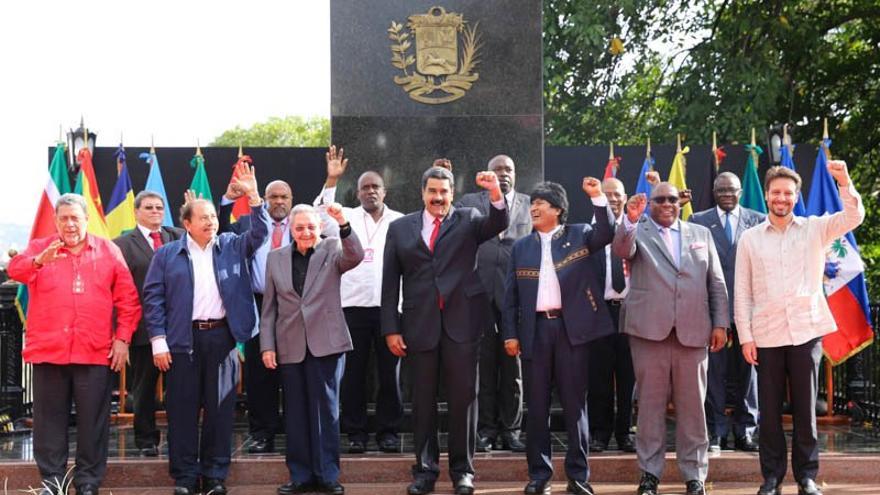
![]() Carlos Malamud, México | 27 August 2018 — The Venezuelan migratory crisis, aggravated by events and with an expansive wave of continental reach, has claimed a new victim: the Bolivarian Alliance for the Peoples of our America (ALBA). The cause, the departure of Ecuador from the organization, a decision that seriously compromises its future.
Carlos Malamud, México | 27 August 2018 — The Venezuelan migratory crisis, aggravated by events and with an expansive wave of continental reach, has claimed a new victim: the Bolivarian Alliance for the Peoples of our America (ALBA). The cause, the departure of Ecuador from the organization, a decision that seriously compromises its future.
The motive offered by the Ecuadorian Foreign Minister was the “lack of will” on the part Caracas to resolve the delicate situation that has been created throughout the region. Subsequently, additional motives were added: the social upheaval in Nicaragua and the high price paid in human lives at the expense of government repression.
Since its creation in 2004, what was then called the Bolivarian Alternative of the Americas, had been constantly expanding from its two founding countries, Cuba and Venezuela. Bolivia was added after the arrival of Evo Morales to power. Together with these three, Nicaragua and Ecuador constituted the hard core to which were added a series of small Caribbean countries such as Antigua and Barbuda, Dominica, Grenada, Saint Kitts and Nevis, Saint Lucia, Saint Vincent and the Grenadines, and Suriname, all of them attracted by the cheap oil of the once almighty Venezuelan oil company Petrocaribe.
The point of maximum expansion was achieved in August 2008 when Manuel Zelaya decided to add Honduras to the group. In January 2010, after the coup that took him from power, the new Honduran government decided to withdraw. Thereafter, the decline began, aggravated by the death of Hugo Chávez and the absence of alternative leadership. Venezuela’s economic problems and the continued decline in oil production made things worse.
ALBA is no longer what it once was. The prosperous Latin American dawn that Hugo Chávez and Fidel Castro predicted when they set it up as an alternative to the Free Trade Area of the Americas (FTAA) has ended up eclipsed. At that time David — that is ALBA — liquidated Goliath — FTAA — with the help of Néstor Kirchner and Lula da Silva, and the collaboration of Diego Maradona once again playing his starring role as the buffoon.
The moment is critical. Not even the efforts of its executive secretary, former Bolivian Foreign Minister David Choquehuanca, famous for not reading books and extracting his knowledge from rocks and the wisdom of the ancients, have been able to rescue the institution from the paralysis in which it found itself. One by one the integration organizations promoted by Chavismo have collapsed: CELAC, Unasur and now ALBA.
All of them were products of what many academics pompously called “post-neoliberal integration,” when they were just empty shells, as the passage of time has shown. And their failure was not due, as they will want us to believe again, to the effect of diverse conspiracies hatched by imperialism, but to their incapacities and the lack of a serious project of regional integration, aggravated by the shipwreck of the “Bolivarian Revolution.” The eclipse of ALBA has marked the decline of the so-called “dream of Bolívar,” the construction of the “Great Homeland,” leaving orphaned, now, of powerful supporters.
Note from the Editor: this analysis has been previously published in El Heraldo de México. We reproduce it with the authorization of the author.
________________________
The 14ymedio team is committed to serious journalism that reflects the reality of deep Cuba. Thank you for joining us on this long road. We invite you to continue supporting us, but this time by becoming a member of 14ymedio. Together we can continue to transform journalism in Cuba.
